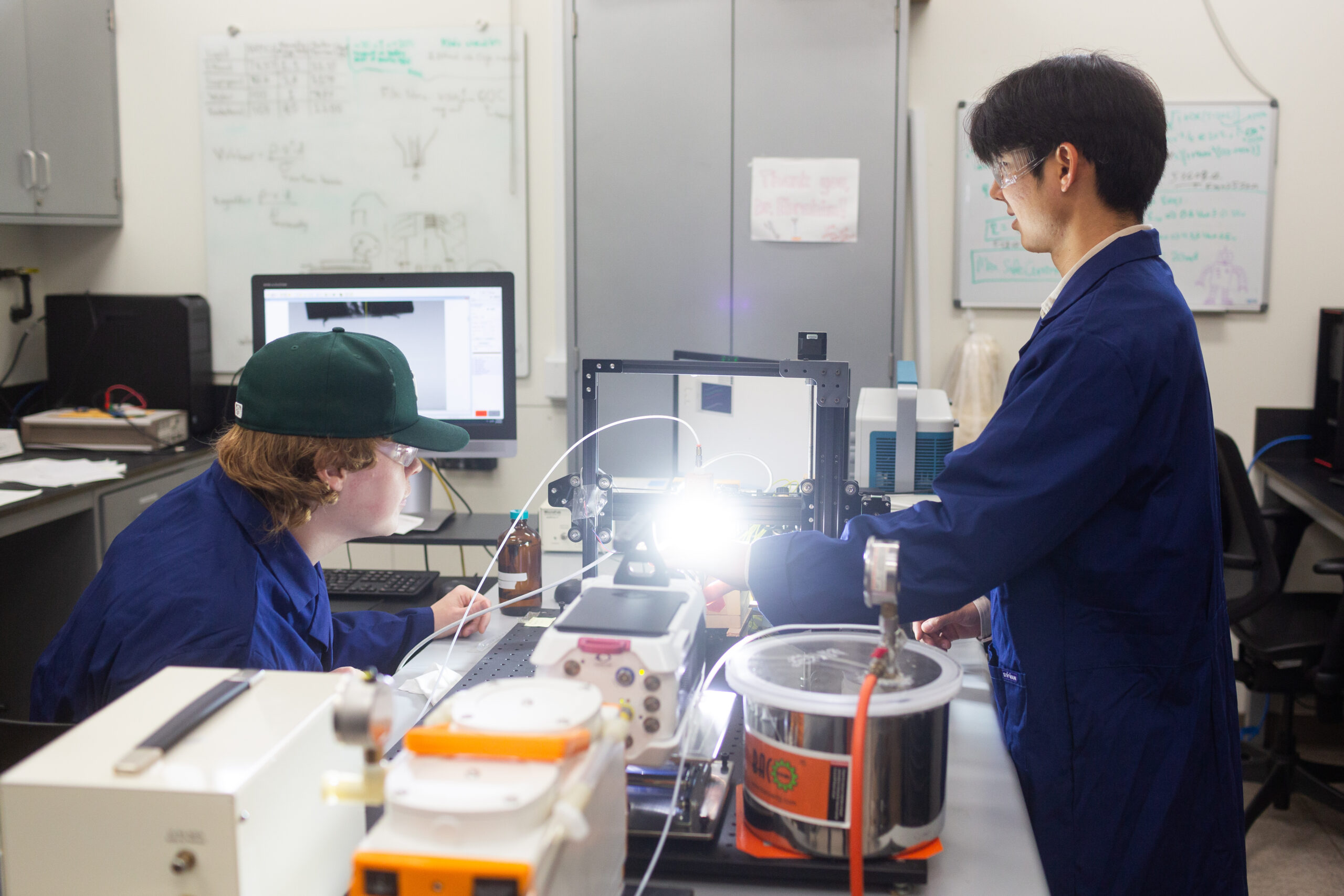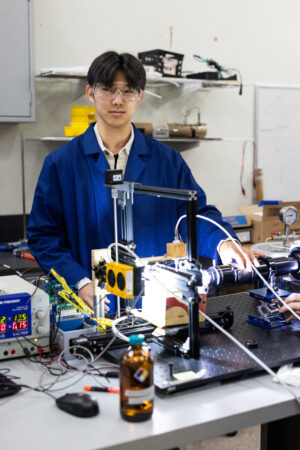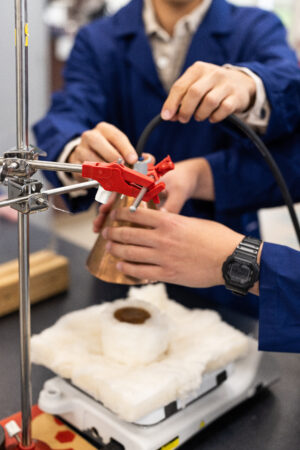
This summer, more than 80 students and faculty made up the Seaver Summer Research Community. The topics ranged from studying combinatorics and graph theory, to studying the unfolded protein response, and more. We connected with some of the students to learn more about their research projects. Today, we spotlight mechanical engineering major Jarret Furuta ’24, mentored by Mahsa Ebrahim, assistant professor of mechanical engineering.
Tell us about the research you’re working on this summer.
The purpose of this research project is to explore the effects of microdroplets on hot surfaces. To do so, both single-droplet cooling, as well as spray cooling experiments are to be conducted. Liquids such as ethanol, isopropanol, and isobutanol are tested. During experiments, data is collected by using thermocouples which measure temperature. From there, we can asses heat transfer properties of the droplets by taking the differences in temperatures.

How does your research relate to other fields?
In the real world, it is common to observe electrical parts that overheat. Conventional electronic cooling methods such as fan airflow and liquid heat sinks may not be as effective as directly spraying components with microscopic amounts of liquid. In the microdroplet cooling process, the heat from an electronic component’s surface is transferred into sprayed microdroplets that evaporate to keep the component’s temperature low and at a more effective operating level. The effectiveness of microdroplets at transferring heat is an area of interest because of the increasing amounts of processing power that computer processing units are able to handle, and heat that they generate as a result of it. Research in this field has explored the variety of factors that manipulate microdroplets, such as surface tension and release patterns of the droplets.
What’s the biggest lesson that you’ve learned from your research?
Students gain critical thinking skills, because correct answers or solutions to problems are no longer provided to them during the research process. They also gain collaborative working skills because they work in groups.

How does your research compliment your coursework?
During research, students use fundamental heat transfer, thermodynamic, and fluid mechanic laws to derive equations necessary for data calculation. Participating in SOAR gave me an opportunity to dive deeper into certain topics that professors don’t always have time to teach in class. In addition to this, we also get more of a hands-on experience, as we get to work with lab equipment almost every day. This allows us to become more comfortable with the equipment and explore their wide range of capabilities.
Do you have any advice for someone on the fence about doing research?
It’s a great opportunity to gain hands-on experience and use your knowledge in real-world applications. It also allows you to learn valuable collaborative working skills, and form lifetime connections with your research group and professor. On top of that, it is paid and will look great on a resume. The program is only 6 weeks, which still allows you to have an adequate summer break. Housing will be taken care of by the university if needed. Professors are also very friendly and understanding with work hours if you are taking summer courses.
This is a part of a series on summer research students are conducting at Seaver College.
Edited by Noémie Boucher ’25



